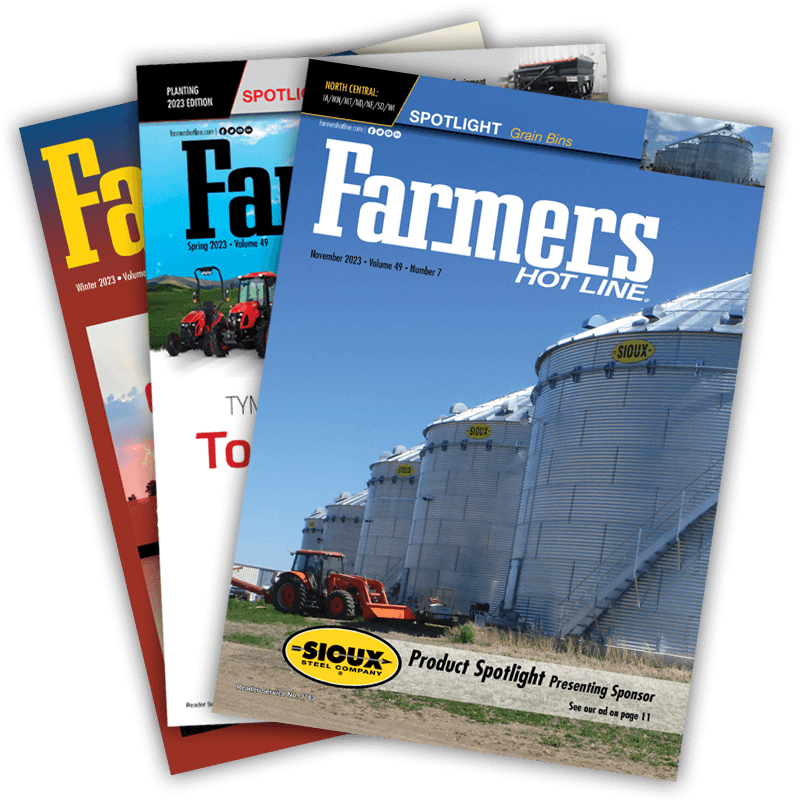Farm Tire Choice And Care Important For Where The Rubber Meets The Soil
Farm tires are more than just rubber, air, and protruding tread patterns. They are the vital link between tractors, combines and self-propelled sprayers, and the soil.
Depending on the type of tire a farmer uses on his or her equipment and how those tires perform in the field can spell the difference between good and bad crop yields, said Jeremy Hurt, senior application specialist at Equipment Technologies, manufacturer of Apache-brand sprayers.
“The right ply, tire width and air pressure can reduce the risk of compaction in the soil,” he said. “And we know when weight is concentrated in a narrow area on a tire it creates ruts in the soil. And those ruts lead to soil compaction, which affects crop development.”
As farmers look to the 2015 crop season they should inspect their fields for compaction and other tire-causing soil problems. Switching to tires that place less stress on the soil can pay for themselves in higher crop productivity, Hurt said.
Ply – the thickness of the rubber and its internal construction – gives tires strength. The heavier the equipment’s load-bearing weight, the higher a tire’s ply rating should be to carry that weight.
Width also is important for tire selection. While it would seem to be the opposite, wider, heavier tires are best in conditions where soil compaction is a concern. The reason? The weight of machinery is dispersed over a larger area, reducing compactive force. Wider models known as flotation tires generally measure 20-22 inches across, compared with row crop tires that are about 15 inches wide.
Farmers in western states and Canada where wheat is a dominant crop often opt for even wider full-float tires. Some equip each wheel mount with twin tires known as duals.
Then there’s tread. Farm tires come in patterns of all kinds, from V-shapes to diamond designs to long and short bar combinations.
“Tread design makes a difference in the performance of a farm tire,” said Tony Moore, agricultural and compact line sales and development manager for Michelin North America, official tire supplier for Apache Sprayers.
“Physics would tell you that the tread that is 90 degrees to your direction of travel would give you the most traction. Likewise, tread that goes the same direction as you travel would be the smoothest ride and the least traction.”
Michelin research shows tread angles of 45 degrees provide an ideal balance between traction and ride. And tires with a flat profile across the tread pattern add to performance.
“A rounded or crowned profile will distort when under a heavy load, causing the lugs to ‘squirm,’” Moore said. “This unintended movement will create uneven wear on the tire and shorten the tread life. When the crowned profile runs in soft soil conditions it will sink into the soil and create compaction.”
Finally, proper air pressure is essential to maximum tire performance and life. Standard farm tire air pressures are 30-40 pounds per square inch.
“Farmers will want to routinely check air pressures, both during the crop season and after putting their machinery in the barn for the winter,” Hurt said. “I recommend monitoring air pressure every week. If you check your tires one week and they are at 38 psi and the next week at 36 psi, it’s probably not a big deal. But if, in the third week, they’re down to 34 psi you might want to look for air leaks.”
Hurt doesn’t advise using fix-a-flat products on farm tires. Agricultural tires are too large and heavy, and getting the right seal over an air leak is difficult.
“I would leave tire repairs to a professional, or replace those tires,” he said. “You don’t want a bad tire going down and creating other problems while you’re trying to get things done.”
Equipment Technologies is the largest privately owned manufacturer of self-propelled sprayers in North America. The company builds Apaches at its Mooresville assembly plant and markets the sprayers through a vast dealership network in the United States, Canada, Australia and Ukraine.
Apaches come in five models: the AS720, a 160 horsepower machine with 750-gallon product tank; AS1025 (1,000-gallon, 173 horsepower); AS1220 (1,200-gallon, 215 horsepower); AS1020 Plus II (1,000-gallon, 275 horsepower); and AS1220 Plus II (1,200-gallon, 275 horsepower). The mechanical drive sprayers feature a torque-converted, power shift transmission, and a lighter weight-to-horsepower ratio that sends 98 percent of the Apache’s horsepower to the ground. Apaches weigh 3,000-9,500 pounds less than competing sprayers.
All 2015 model Apaches come with an industry-leading five-year warranty that covers all machine parts and labor for the first two years up to 1,000 hours of operation, and the drivetrain and parts for years 3-5 up to 2,000 hours of operation.
Visit www.etsprayers.com for more information and a dealership locator


